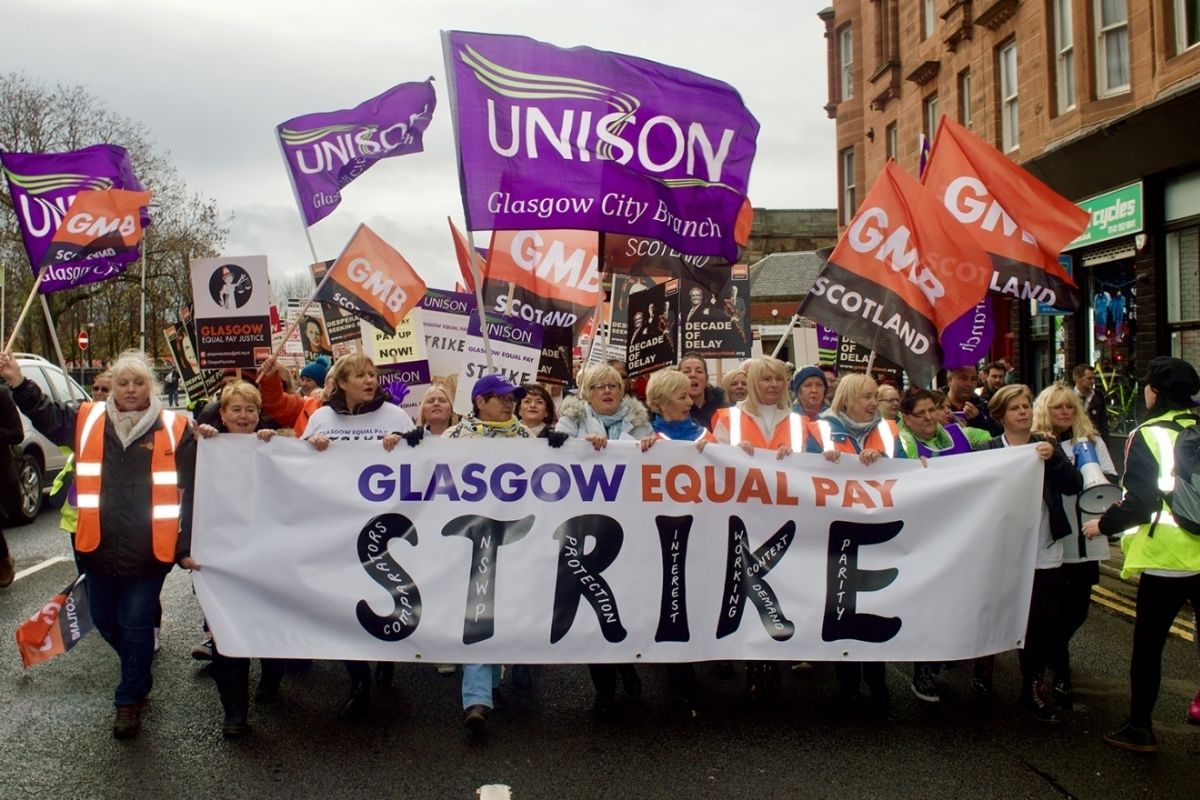At the end of June, Birmingham City Council, representing 1.2 million people, decided to bring down the guillotine on all non-essential spending with immediate effect.
This decision comes in the wake of a £760 million bill over unequal pay claims, which has placed the council on the verge of bankruptcy.
Pay injustice

This severe financial crisis has arisen as a result of the council significantly underpaying its female staff. Birmingham City Council has already paid out over £1.1 billion in unequal pay claims over the past decade.
A court ruling in 2012 found that hundreds of council employees – in poorly-paid, female-dominated roles, such as teaching assistants and catering staff – have missed out on bonuses given to those in more male-dominated roles, such as refuse collectors and street cleaners.
It is estimated that, in total, female staff are being paid £5-14 million less per month relative to their male colleagues in comparable positions.
Rather than addressing this issue, Birmingham City Council decided to kick the can down the road. Consequently, these workers have not received a fair wage.
Inspired by the struggle of women workers at Glasgow City Council, who have faced an almost identical situation, GMB union pursued a further pay complaint for Birmingham staff. But the council was completely uncooperative. It took two years of campaigning until the employers’ hand was finally forced.
Whilst teaching assistants, cleaners, and school canteen workers are being pushed into poverty, Birmingham City Council’s chief executive Deborah Cadman is sitting pretty on almost £250,000 per year. Other top bureaucrats receive similar sums.
The question of pay inequality, then, is not simply one of gender, but of class.
Councils squeezed
It is the poorest layers – both workers and local residents – who are being forced to pay for this crisis.
Across the country, local councils are being squeezed. As part of their programme of cuts and austerity, the Tories have slashed council funding by 37% since 2010.
Scandalously, whether blue, yellow, or red, these councils are passing the government’s attacks onto the working class.
Council tax across the country has been raised by 25% since 2010. And an erosion of pay and conditions has pushed hundreds of thousands of local authority workers into despair.
Plundering the city
It is clear that the working class in Birmingham is going to be picking up the bill once again – made to shoulder the costs for the council’s crimes.
The capitalists, meanwhile, are licking their lips over the prospect of future firesales of the council’s assets.

Multi-billion pound company Oracle has already had its snout in the trough. The cost of its IT system for the council has skyrocketed from an initial £20m estimate to almost £100m. Shockingly, this system still does not work. Consequently, the council has employed a small army of highly-paid consultants to ‘solve’ the problem.
Birmingham councillors are clearly more concerned with allowing huge corporations to plunder the city: underpaying female staff, and splurging cash on vanity projects like last year’s Commonwealth Games.
At the same time, they have failed to tackle the immense problems facing the working class.
One in two of the city’s children grow up in poverty. Half the city falls into the top 10% of most-deprived areas in the country. And by riding just seven stops on the tram, average life expectancy falls by 10 years.
This is what a decade of a Labour council in Birmingham has achieved.
Militant fightback
Across the country, the ‘dented shield’ approach of ‘managing’ austerity has evidently been unable to withstand the barrage of cuts that capitalism in crisis demands.
Instead of mobilising communities to fight the cuts, Labour councils have allowed themselves to become loyal handmaidens for the Tory government in Westminster.
Newly-appointed Birmingham council leader John Cotton is completely committed to managing the crisis. He has vowed to ‘roll up his sleeves’ and bring public finances under control. What more could you expect from a man who owes his job entirely to Labour leader ‘Sir Kid Starver’?
In place of this subservience, we need a mass campaign across the labour movement against austerity, linked to the fight for bold socialist policies.
Rather than denouncing the unions, councillors should be joining forces with them. The struggles of Liverpool council in the 1980s and of the Poplar rebels show the way.
In Birmingham, the trade unions must mobilise and take militant action to fight the cuts to jobs, pay, and conditions; prevent any asset-stripping in the city; and end outsourcing rip-offs.
Government bureaucrats, multinational corporations, and tyrannical bosses have been allowed to leech off our communities for far too long. They must be the ones to pay for this crisis.






